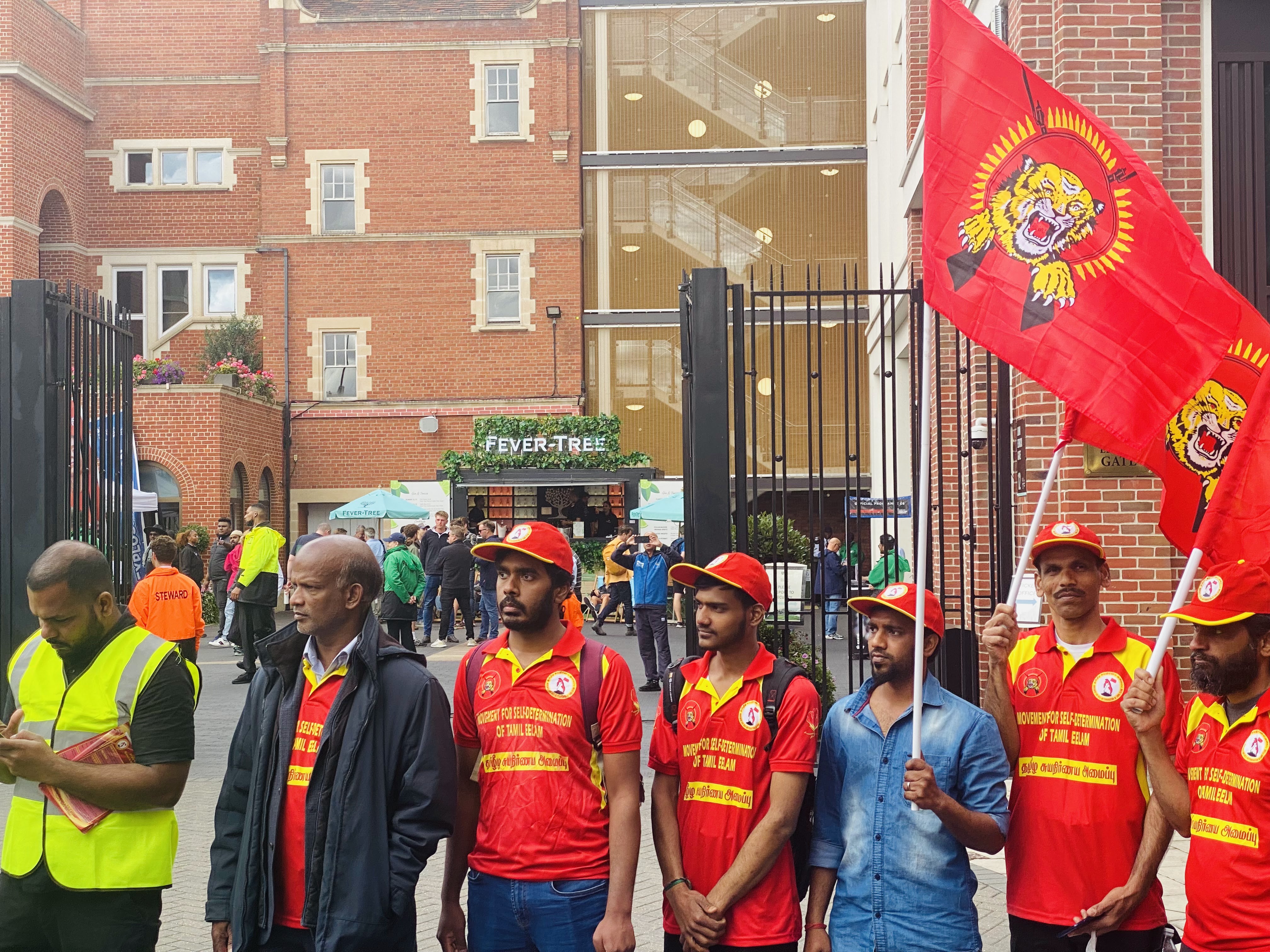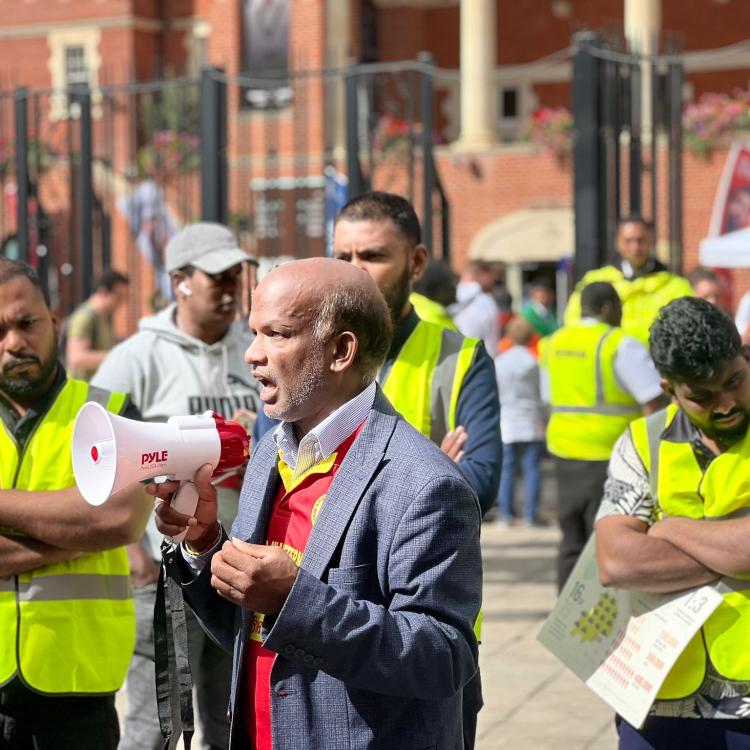
The Sri Lankan government has lodged a protest with the UK Home Office after British Tamils demonstrated against the Sri Lankan cricket team in London this week, demanding a sporting boycott over the genocide of Tamils.
Demonstrators gathered outside the Oval as fans entered the ground on Sunday, urging the British government and sporting bodies to ban Sri Lanka from international cricket over its human rights record. Protesters chanted slogans such as "Sri Lankan team, go back," "Don’t hide Tamil genocide behind cricket matches," and "International Cricket Council, ban the Sri Lankan team!"
The Sri Lankan government however has reportedly lodged a complaint with the UK Home Office, highlighting the use of the Tamil Eelam national flag. The Sri Lankan High Commissioner in London, Rohitha Bogollagama, reportedly said it was an “emblem of the LTTE,” and he raised it with the Home Office.
Contrary to the High Commissioner’s remarks however, the Tamil Eelam flag remains entirely legal to fly across the world as the national flag of Eelam Tamils.
On repeated occasions the British Home Office itself has recognised the difference the Tamil Eelam flag and the symbol of the LTTE, the latter which remains a proscribed organisation in the UK.

